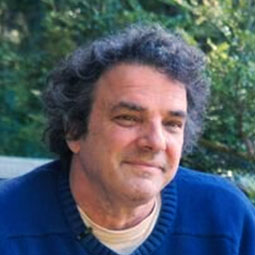Jensen is an author and radical environmentalist. He has published several books, including The Culture of Make Believe (2002) and Endgame (2006), many of which critique civilization as a social system, explore its inherent values, hidden premises, and modern links to supremacism, oppression, and genocide, as well as corporate, domestic, and worldwide ecological abuse.
Jensen is a direct opponent of civilization, rejecting the notion it can ever be an ethical or sustainable model for human society. He describes the linguistically and historically defensible definition of civilization as “a culture — that is, a complex of stories, institutions, and artifacts — that both leads to and emerges from the growth of cities and the definition of city as a group of “people living more or less permanently in one place in densities high enough to require the routine importation of food and other necessities of life.” He states civilizations and cities are both unsustainable, since if you require the importation of resources, you’ve denuded the landscape of those particular resources, and, as your city grows, you will be forced to denude an ever-larger area. He then states your way of life must be based on violence, since if you require the importation of resources, trade will never be sufficiently reliable, and if you require the importation of resources and the people in the next watershed over aren’t going to trade you for it, you’re going to take it by force.
Jensen advocates non-anthropocentrism, or ecocentrism, according to which humans should primarily support the flourishing of natural communities and their many individual species, rather than the flourishing of humans alone and they should extend the status of personhood to all organisms and ecosystems, including non-human animals and plants. His view, which moves the central moral focus away from civilized humans, names and chastisizes some of the underlying values most championed by modern civilization, including technological advancement, economic growth, the inevitability of progress, and sustainability as seen through the lens of “development”. Jensen promotes a way of life which is harmonious in a truly ecological sense, and is thus lastingly sustainable, such as the diverse ways of life historically exhibited by many indigenous, non-civilized cultures. He claims “the fundamental difference between Western and indigenous ways of being is that even the most open-minded Westerners generally perceive listening to the natural world as a metaphor, as opposed to the way the world really is.” While indigenous peoples understand the world as consisting of other beings with whom we can enter into relationship, he argues Westerners believe the world consists merely of objects or resources to be exploited or used.
Jensen argues that dysfunctional and antisocial behaviors pervade civilization, and the psychopathology of modern civilization’s global, industrial economy obliterates healthy personal relationships as well as the natural environment and indigenous ways of life. Accordingly, he exhorts readers and audiences to help bring an end to industrial civilization, promoting its dismantling by any means necessary, thus challenging pacifism, since he believes violence may be justified at times, particularly as a form of self-defense or resistance against oppression. Jensen has clarified, he gets “accused of being the ‘violence guy’… but I don’t ever think that’s really fair, because I really consider myself the ‘everything guy’, that I want to put everything on the table and talk about all forms of resistance…. We can certainly parse out cases where we think it’s appropriate to have militant response or non-militant response.”
Jensen also considers himself an anti-capitalist, a critic of organized religion (including Buddhism), a critic of science, an anti-racist, and a radical feminist, and seems to agree with those critics who have called him an “anti-civilizationist”. He has also been called anarcho-primitivistic, a label which he once accepted, although more recently he has distanced himself from both the terms “anarchist” and “primitivist,” especially criticizing modern anarchism’s herd mentality and describing “primitive” as a “racist way to describe indigenous peoples.” He prefers to be called “indigenist” or an “ally to the indigenous,” because “indigenous peoples have had the only sustainable human social organizations, and[…] we need to recognize that we [colonizers] are all living on stolen land.”
With respect to the question of human overpopulation, Jensen concedes that it is a social and environmental problem, but only at a “tertiary” level, and that overconsumption—along with civilization and its ruthless, expansionist cultural mindset—is the primary problem faced by the world.
“To reverse the effects of civilization would destroy the dreams of a lot of people. There’s no way around it. We can talk all we want about sustainability, but there’s a sense in which it doesn’t matter that these people’s dreams are based on, embedded in, intertwined with, and formed by an inherently destructive economic and social system. Their dreams are still their dreams. What right do I — or does anyone else — have to destroy them. At the same time, what right do they have to destroy the world?”
